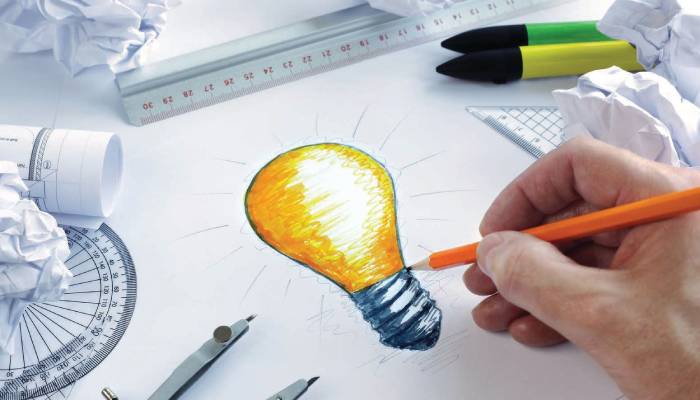
or

Intellectual property rights (IPR) are often referred to as a bundle of exclusive rights granted to the IPR owner. In the case of patents, those exclusive rights include the right to make, use, and offer for sale, sell and import the patented invention. These exclusive rights, however, are not without limitation. Some of the rights can be extinguished by an authorized sale of a product. Thus after a product covered by an IP right, such as by a patent right, has been sold by the IP right owner or by others with the consent of the owner, the IP right is said to be exhausted. IP rights in relation to that product can no longer be exercised by the owner. This limitation is also referred to as the “exhaustion doctrine” or “first sale”.
For example, if an inventor obtains a patent on a new kind of umbrella, the inventor (or anyone else to whom he sells his patent) can legally prohibit other companies from making and selling this kind of umbrella, but can not prohibit customers who have bought this umbrella from the patent owner from reselling the umbrella to third parties. The exhaustion of patent rights is divided into three categories National Exhaustion, International Exhaustion and Regional Exhaustion. However we shall limit our discussion to International Exhaustion of patent rights.
The term International Exhaustion means that the IP rights of the owner of the product are exhausted once the product has been sold by the IP owner or with his consent in any part of the world.
International exhaustion of patent rights with regard to parallel imports is explained hereunder. When the parallel importers buy patented products from low-price country and import them into high-price country to offer at lower prices than local price set by patentee. These parallel imports are patented products and not counterfeits.. Thus parallel import is the import and resale in a country, without the consent of the patent holder, of a patented product that has been legitimately put on the market of the exporting country.
In India Section 48 of the Indian Patent Act, 1970 confers a time-bound monopoly for the working of an invention upon the patent holder during which the patentholder can prevent any other person from using, making, selling, offering for sale or importing the patented product in the country in which the patent is in force. Thus, the patent confers not only the exclusive right to manufacture and work the patent in the country, but also the exclusive right to import the patented product into the country. However, the right of importing the product by the patent holder are restricted by the principle of exhaustion of rights as per section 107-A (b) of the Indian Patent Act. Since India follows the principle of international exhaustion, the right with respect to patent stands exhausted when the patented product is legally sold in the world market. Such a scenario stands friendly to the principle of parallel import and it encourages competition among the market forces; however it is detrimental to the owner of the patented product because he is then unable to control the chain of distribution and the conditions in which the patented product is sold.
For example taking into consideration a hypothetical situation; X an Indian company having patent right over the O2 capsules and exports those capsules to company ‘Y’ in Bangladesh. Now company ‘Y’ is free to import the same capsules to India and sell it at a lower price in India. The act on part of company ‘Y’ by virtue of which it imported O2 capsules in India is known as parallel import.
Japan does not exhibit any proper legislative framework for International Exhaustion of Patent Rights; however, the Supreme Court and the subordinate courts have interpreted and decided several issues pertaining to the doctrine of international exhaustion and parallel import but there is no consensus in their approach.
In 1998 the Supreme Court of Japan adopted the doctrine of international exhaustion of patent rights in relation to parallel imports of patented products into Japan, overturning the previous doctrine of national exhaustion. BBS Kraftfahrzeugtechnik AG v. Racimex Japan Corp Supreme Court of Japan held that Parallel importation will not constitute patent infringement unless the patentee agreed or indicated on the goods that distribution into Japan was prohibited and Japan has accepted the doctrine of international exhaustion of patent rights. It was held by the Supreme Court of Japan:
Thus on understanding the legislative framework prevalent in both the countries India and Japan we can conclude that International Exhaustion of patent rights opens up the avenues of international trade and increases competition among the countries but it has limited constraints on the rights of patentee.
The author is the Founder Director, ITAG Business Solutions Ltd. and Global IP Convention (GIPC)

Lex Witness Bureau

Lex Witness Bureau

For over 10 years, since its inception in 2009 as a monthly, Lex Witness has become India’s most credible platform for the legal luminaries to opine, comment and share their views. more...
Connect Us:


The Grand Masters - A Corporate Counsel Legal Best Practices Summit Series
www.grandmasters.in | 8 Years & Counting
The Real Estate & Construction Legal Summit
www.rcls.in | 8 Years & Counting
The Information Technology Legal Summit
www.itlegalsummit.com | 8 Years & Counting
The Banking & Finance Legal Summit
www.bfls.in | 8 Years & Counting
The Media, Advertising and Entertainment Legal Summit
www.maels.in | 8 Years & Counting
The Pharma Legal & Compliance Summit
www.plcs.co.in | 8 Years & Counting
We at Lex Witness strategically assist firms in reaching out to the relevant audience sets through various knowledge sharing initiatives. Here are some more info decks for you to know us better.
Copyright © 2020 Lex Witness - India's 1st Magazine on Legal & Corporate Affairs Rights of Admission Reserved